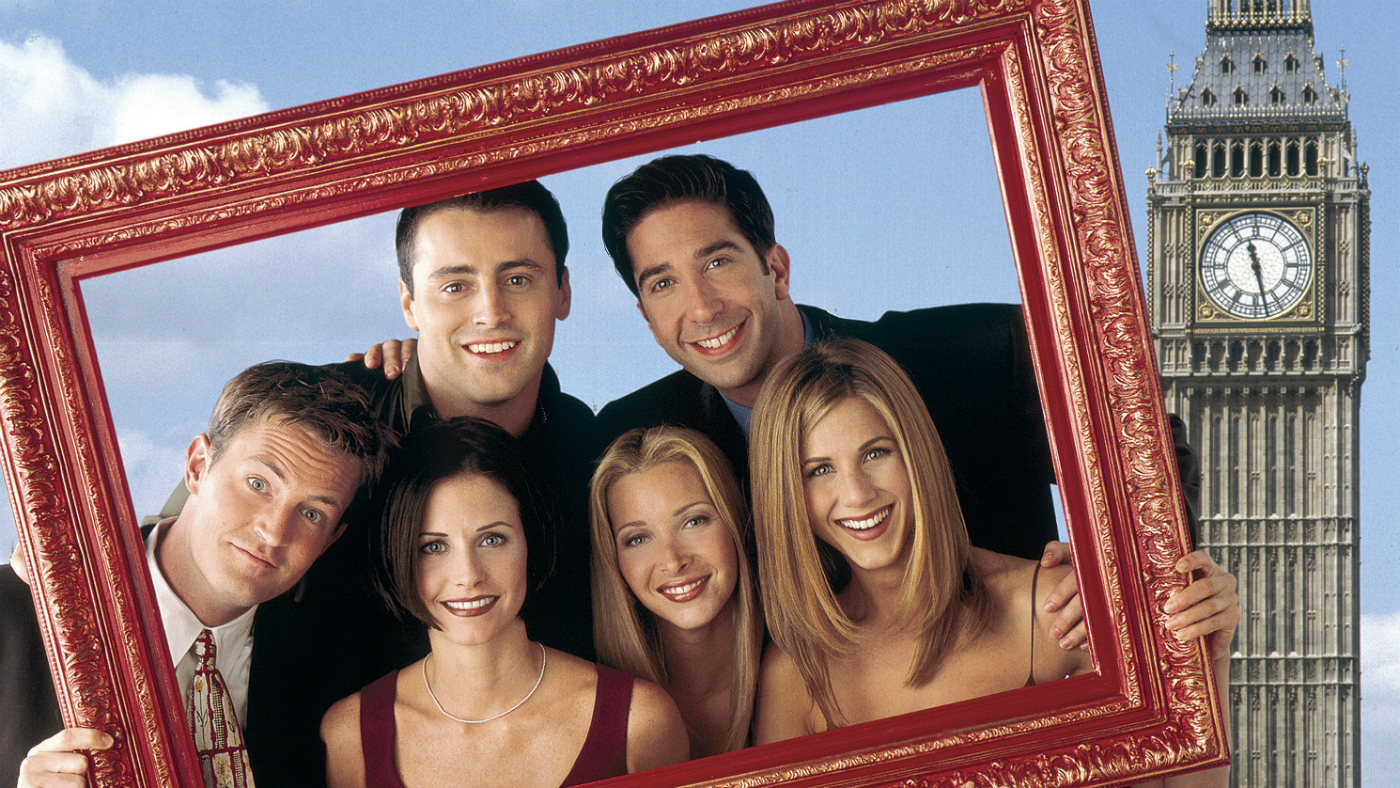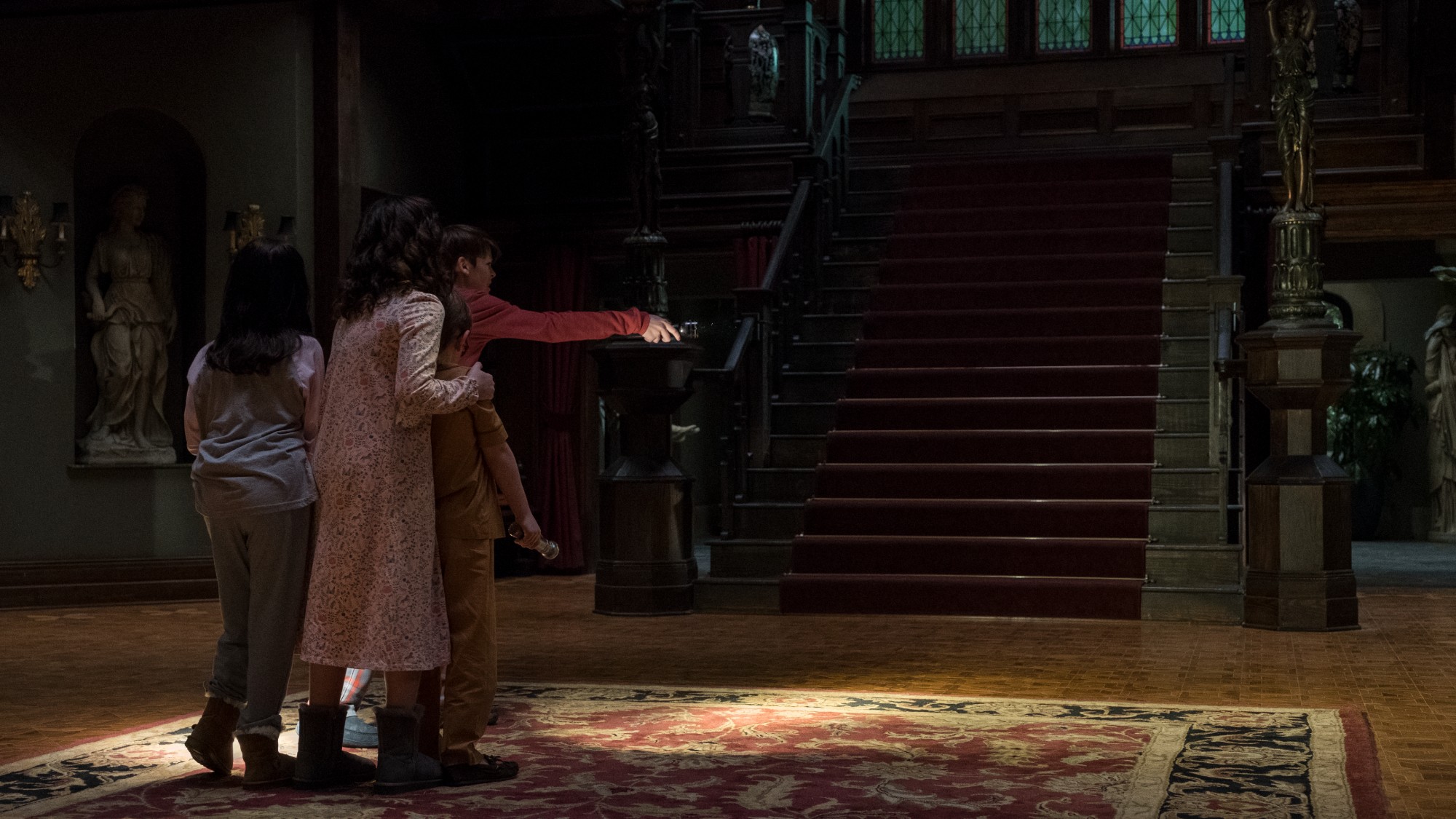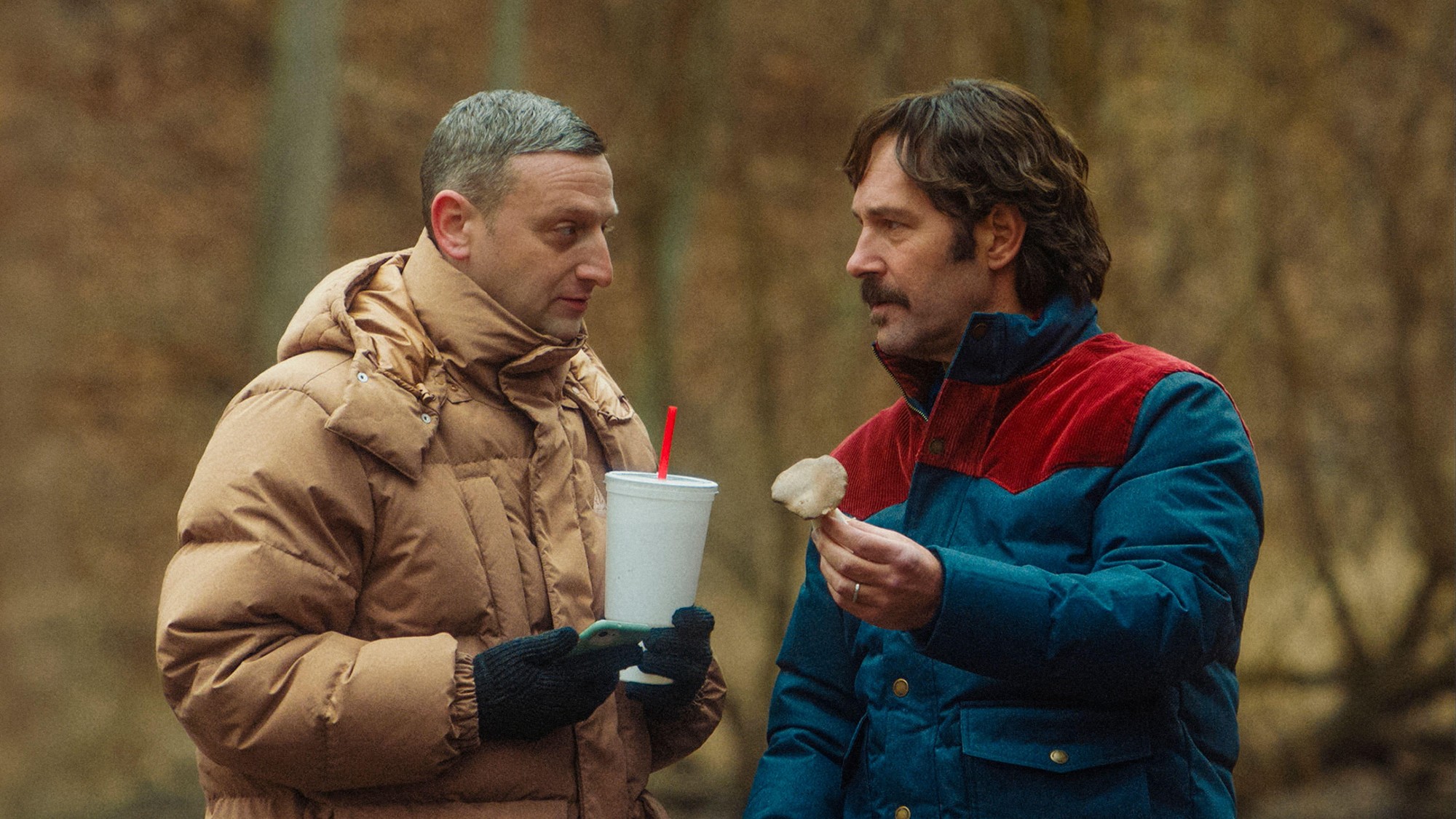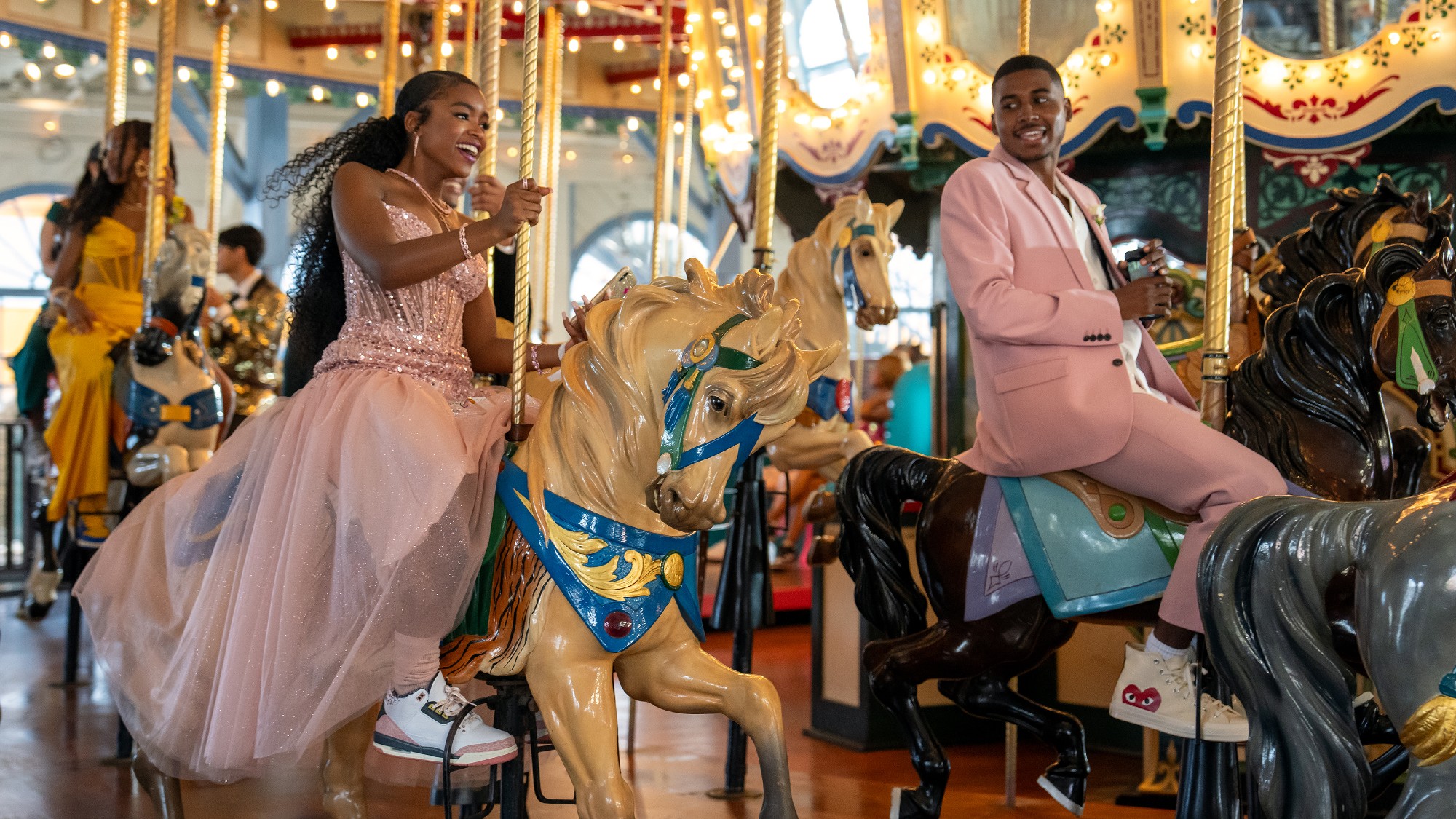Why is Friends still the UK’s favourite sitcom?
New figures show the 1990s sitcom is most-streamed show this year

A free daily email with the biggest news stories of the day – and the best features from TheWeek.com
You are now subscribed
Your newsletter sign-up was successful
US sitcom Friends was the most streamed TV programme in Britain in the first quarter of 2018, industry statistics reveal.
All 234 episodes of the hit show, which ended 14 years ago, were uploaded to Netflix UK in January. Fans immediately tuned in, with twice as many episodes of Friends streamed in the first three months of 2018 than its nearest rival, Amazon’s The Grand Tour, according to TV watchdog Ofcom.
Friends also beat more recent hits including The Crown, Stranger Things and Black Mirror, the BBC reports.
The Week
Escape your echo chamber. Get the facts behind the news, plus analysis from multiple perspectives.

Sign up for The Week's Free Newsletters
From our morning news briefing to a weekly Good News Newsletter, get the best of The Week delivered directly to your inbox.
From our morning news briefing to a weekly Good News Newsletter, get the best of The Week delivered directly to your inbox.
Starring David Schwimmer, Jennifer Anniston, Matt LeBlanc, Courtney Cox, Matthew Perry and Lisa Kudrow, the sitcom was hugely successful during its ten-year run, and the final episode remains one of the most-watched finales in US TV history, with 65.9 million viewers tuning in.
But why is it still so popular in the UK?
The Ofcom report says that the rapid climb of Friends to the top of the streaming charts is being driven by viewers aged between 16 and 34. In 2016, columnist Lucy Mangan theorised in The Guardian that millennials may “find the sanitised, airbrushed version of New York life led by the perfectly coiffed sextet even more comforting than we did, the escapism offered even more valuable”.
“The Friends’ friends do not, after all, have to negotiate Tinder, social media, a post-crash job market, exponentially increasing rents or any of the other myriad stresses millennials are still desperately trying to evolve strategies to deal with,” Mangan noted.
A free daily email with the biggest news stories of the day – and the best features from TheWeek.com
The Daily Mail, on the other hand, suggests a simpler explanation - that “parents who loved the show in their 20s now sit down to watch the repeats with their teens, while students who were toddlers when it first aired proclaim their appreciation on Twitter”.
However, “some millennial viewers” who watched the show for the first time after it was made available on Netflix “complained that the humour was dated and offensive”, reports The Times.
Writing in The Independent, Ilana Kaplan says: “Storylines laced with homophobia, sexism, borderline emotional abuse and sexual harassment are portrayed as punchlines.
“The lack of diversity within its ten seasons is inexcusable and embarrassing.”
Journalist Rebecca Reid told BBC Radio 5 live in in January that she “couldn’t believe how badly [Friends] has aged”, adding: “The homophobia is staggering - the punchline of every joke about Ross is that his ex-wife is a lesbian, as if that’s some failing of his and that it’s hilarious that she’s a lesbian.
“The sexism’s pretty rampant as well... [and] it’s the whitest show in the whole world.”
-
 Local elections 2026: where are they and who is expected to win?
Local elections 2026: where are they and who is expected to win?The Explainer Labour is braced for heavy losses and U-turn on postponing some council elections hasn’t helped the party’s prospects
-
 6 of the world’s most accessible destinations
6 of the world’s most accessible destinationsThe Week Recommends Experience all of Berlin, Singapore and Sydney
-
 How the FCC’s ‘equal time’ rule works
How the FCC’s ‘equal time’ rule worksIn the Spotlight The law is at the heart of the Colbert-CBS conflict
-
 February TV brings the debut of an adult animated series, the latest batch of ‘Bridgerton’ and the return of an aughts sitcom
February TV brings the debut of an adult animated series, the latest batch of ‘Bridgerton’ and the return of an aughts sitcomthe week recommends An animated lawyers show, a post-apocalyptic family reunion and a revival of a hospital comedy classic
-
 The 8 best hospital dramas of all time
The 8 best hospital dramas of all timethe week recommends From wartime period pieces to of-the-moment procedurals, audiences never tire of watching doctors and nurses do their lifesaving thing
-
 The 8 best horror series of all time
The 8 best horror series of all timethe week recommends Lost voyages, haunted houses and the best scares in television history
-
 The 8 best comedy movies of 2025
The 8 best comedy movies of 2025the week recommends Filmmakers find laughs in both familiar set-ups and hopeless places
-
 The best drama TV series of 2025
The best drama TV series of 2025the week recommends From the horrors of death to the hive-mind apocalypse, TV is far from out of great ideas
-
 The 8 best drama movies of 2025
The 8 best drama movies of 2025the week recommends Nuclear war, dictatorship and the summer of 2020 highlight the most important and memorable films of 2025
-
 The 8 best comedy series of 2025
The 8 best comedy series of 2025the week recommends From quarterlife crises to Hollywood satires, these were the funniest shows of 2025
-
 A postapocalyptic trip to Sin City, a peek inside Taylor Swift’s ‘Eras’ tour, and an explicit hockey romance in December TV
A postapocalyptic trip to Sin City, a peek inside Taylor Swift’s ‘Eras’ tour, and an explicit hockey romance in December TVthe week recommends This month’s new television releases include ‘Fallout,’ ‘Taylor Swift: The End Of An Era’ and ‘Heated Rivalry’